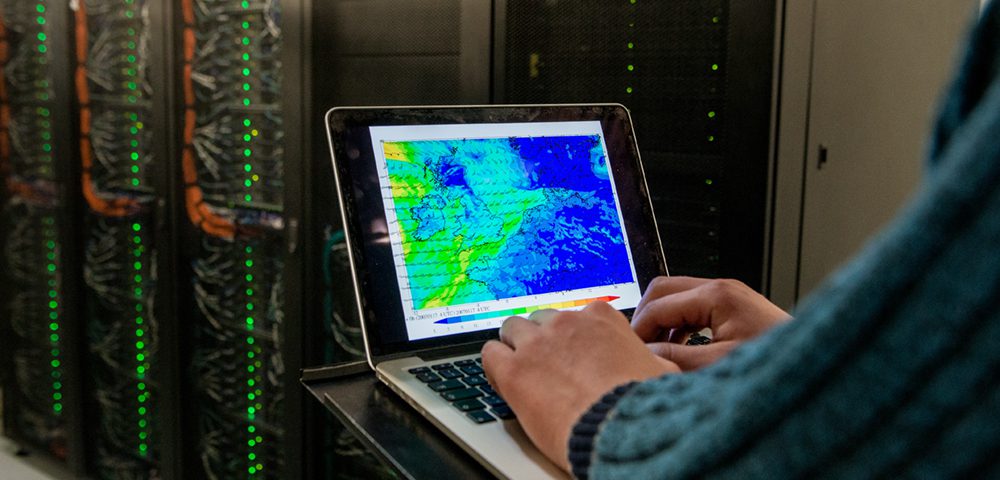Numerical flow simulations are particularly relevant for the further expansion of wind energy. To date, modeling and simulation methods exist on different scales. They range from complex weather systems with dimensions of hundreds of kilometers to small-scale turbulence on a wind turbine or on individual components that only remain stable for a few minutes. However, these simulations over several scales are very computationally intensive and time-consuming.
In the MOUSE research project, ForWind – Center for Wind Energy Research at the Carl von Ossietzky University of Oldenburg and the Fraunhofer Institute for Wind Energy Systems IWES are working together to link multi-scale flow simulations. The project is being funded by the Federal Ministry for Economic Affairs and Climate Protection (BMWK) until June 2026. Among other things, the research partners want to improve methods of wind/wind power forecasting and wind potential analysis and test the new approaches for their practical suitability for the wind energy industry. Overall, the results of the project are intended to accelerate and improve the design of wind turbines and wind farms and, in the long term, to monitor them in operation.
New digital methods allow new depth in research
The MOUSE project is researching stochastic methods and methods of artificial intelligence in individual sub-projects. The dynamics of the loads on a wind turbine are being researched on various scales in order to arrive at an adaptive wind farm control system based on AI methods. New numerical techniques and methods for flow simulations are to be investigated with a view to improving simulation conditions and computing times. These range from small-scale applications in aerodynamics to large-scale applications in the field of wind farm or site simulations.
In this way, a more precise mapping of the physical properties of the wind flow with the wind farm and turbine behavior can be achieved. In addition, the possibility of coupling the physical behavior of the atmosphere, ocean and wind turbines in a numerical simulation environment is opened up. The more precisely the influences of currents on wind turbines can be simulated, the better manufacturers can adapt the design of the machines to the conditions. Operators benefit by being able to regulate wind farms according to the loads and thus protect the material and optimize the electricity yield. This results in lower electricity generation costs for offshore wind power.
New high-performance computer for wind energy research
In order to meet these complex requirements, a high-performance computer of the latest generation was put into operation at the University of Oldenburg. With the involvement of the Scientific Computing Department at the University of Oldenburg, this system has been expanded specifically for wind energy research in the MOUSE project and supplemented with the appropriate hardware, as the numerical simulations require enormous computing power.
The MOUSE research project is coordinated by ForWind at the Carl von Ossietzky University of Oldenburg. ForWind is the joint center for wind energy research of the universities of Oldenburg, Hannover and Bremen. ForWind bundles wind energy research in the Northwest and connects 30 institutes and working groups from the universities of Oldenburg, Hannover and Bremen. The Fraunhofer Institute for Wind Energy Systems IWES is a partner in the project. Fraunhofer IWES safeguards investments in technological developments through validation, shortens innovation cycles, accelerates certification processes and increases planning accuracy through innovative measurement methods in the field of wind and hydrogen technology.
Contact ForWind:
Project management:
Prof. Dr. Joachim Peinke
Phone: +49 (0)441 798-5050
E-mail: joachim.peinke@forwind.de
Project coordination:
Dr. Hendrik Heißelmann
Phone: +49 (0)441 798-5085
E-mail: hendrik.heisselmann@forwind.de
Contact Fraunhofer IWES:
Dr. Bernhard Stoevesandt
Phone: +49 (0)441 798-5011
E-mail: bernhard.stoevesandt@iwes.fraunhofer.de

